The Kitchen Mistake That’s Slowly Poisoning Your Pantry
Storing foods like spices, oils, or coffee near your stove might be convenient, but it can ruin flavor and shelf life. Here are six foods you should keep far from the heat.
Share the post
Share this link via
Or copy link
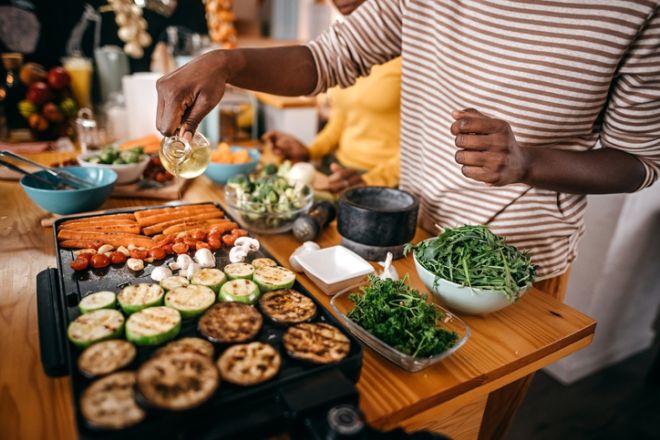
It might seem harmless (and convenient) to stash your go-to cooking essentials right next to the stove. After all, who doesn’t want spices, oils, and coffee within arm’s reach? But this common kitchen habit can actually do more harm than good.
The area around your stovetop is a hot zone—literally. Exposure to heat, steam, and even light can ruin the flavor, shelf life, and safety of many ingredients. From dried spices to fresh produce, certain foods simply don’t belong near that level of warmth and moisture.
Let’s break down which items you should keep far away from your cooktop and what you can do to keep your foods and spices fresh.
1. Spices (Whole And Ground)
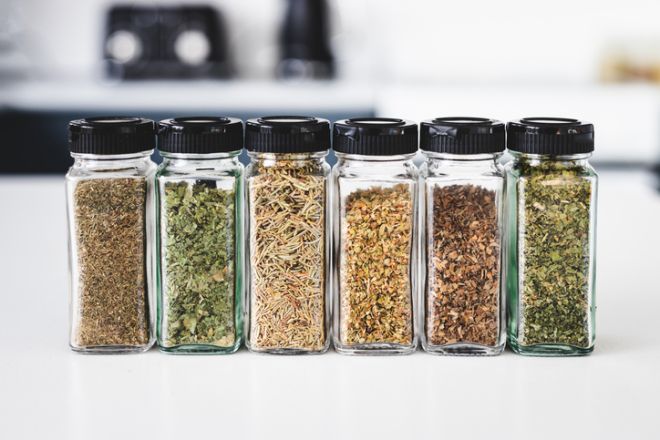
Love MadameNoire? Get more! Join the MadameNoire Newsletter
We care about your data. See our privacy policy.
Spices are flavor-packed, but fragile. Heat, humidity, and light can all break down their natural oils, leaving them dull and clumpy, shared Alyse Baca, a culinary director at Spicewalla, an essential spice and seasonings brand.
“There really aren’t any hard and fast rules about where your spices should be stored. However, if you want to maintain the freshness of your spices, it is best to keep them away from heat and humidity,” Baca told Real Simple in an interview published Sept. 4. “Heat, light, and moisture all break down spices’ natural oils, causing them to lose flavor and potency much faster. Storing your spices in a cool, dark, and dry place like a pantry, cabinet, or drawer away from the stove will prolong their flavor and prevent them from clumping.”
If you like having easy access to salt or pepper while you cook, decant a small amount into countertop containers and refill them regularly from your main stash in a cooler, darker spot, to keep them fresh and flavorful, advised Baca.
RELATED CONTENT: Inspirational Influencer Goes Viral Making Bomb Meal Using Only Her Feet
2. Cooking Oils
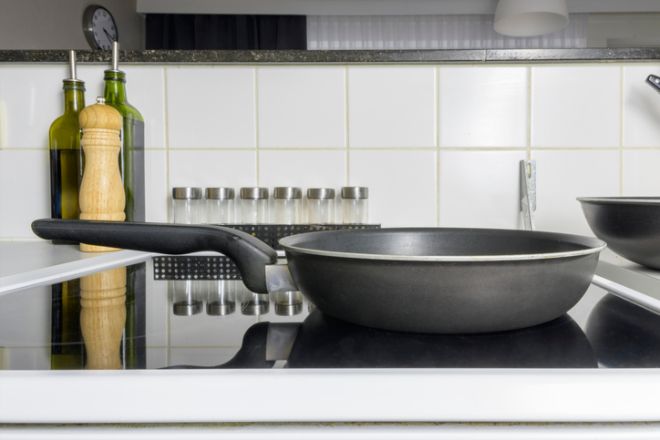
Yes, oils go bad, especially when exposed to heat. Even if you’re cooking with an induction stove, high temperatures can spoil oils more quickly and degrade their flavor.
“Avoid storing oils, vinegars, nuts, flours, and other heat-sensitive ingredients above or near your stove,” shared Alex Wilkens, the Vice President of Product at The Spice House, in the same article.
Not to mention, oils near open flames are a fire hazard. It’s best to store them in a pantry or cabinet to keep them safe and fresh.
3. Vinegars
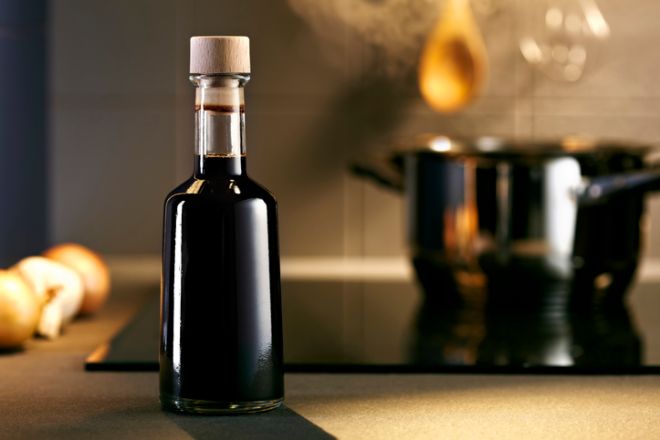
You might assume vinegar is shelf-stable anywhere, but heat can alter its taste and longevity. Keep it cool and out of direct light, whether in a cabinet or your fridge, depending on the type.
Vinegars also fare best in a cool, dark place, or in the refrigerator, if you prefer. A bottle of vinegar doesn’t belong beside the stove because the heat will hurt the flavor of the condiment, the spice experts shared.
4. Coffee
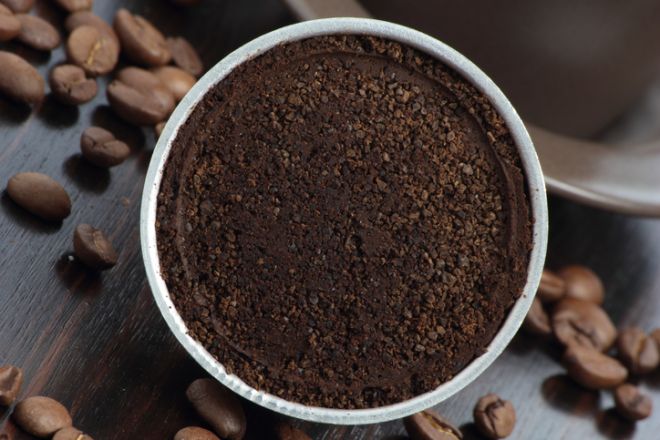
If your coffee station lives next to your stove, it’s time to relocate. Coffee beans and grounds absorb moisture, odors, and heat—three things that destroy flavor.
If you don’t want your morning brew to taste like a stir fry or pesto, keep the beans or grounds in a sealed jar in a cool, dark pantry.
5. Fresh Produce

That fruit bowl on the counter? If it’s sitting next to your stove, it’s probably not doing the fruit any favors. Heat and steam speed up ripening and spoilage. Items like onions, garlic, and potatoes should also be kept far from the stove to avoid softening or sprouting prematurely. Store them in a cool, dry place with good airflow.
6. Perishables (Milk, Eggs, Meat)

It’s easy to take out all your cold ingredients at once while prepping a meal, but resist the urge to let them sit out near the stove. Perishables spoil faster when exposed to warmth: Milk, eggs, and other refrigerated foods deteriorate more quickly if left by the stove, making it best to only take them out right before use.
Even short exposure to rising kitchen temperatures can shorten their shelf life and increase food safety risks. So while it’s tempting to store your most-used ingredients right next to where the magic happens, your food—and your safety—are better off if you don’t. Keep heat-sensitive ingredients in cool, dry places, and only take perishables out when you’re ready to use them. Your meals will taste better, and your kitchen will be safer.
RELATED CONTENT: 10 Simple Ways To Eat Healthier In 2025
-

She Tried It: Inahsi Naturals Aloe Hibiscus Leave-In Conditioner & Detangler
-

Meet Dominique Fils-Aimé, The Haitian-Canadian Star Redefining Jazz For A New Generation: ‘This is My Vision' [Exclusive]
-

Cooking With Purpose — How Brittney Williams Honors Her Caribbean Roots Through Food
-

8 Famous Lesbian Women Who Were Married To Men




